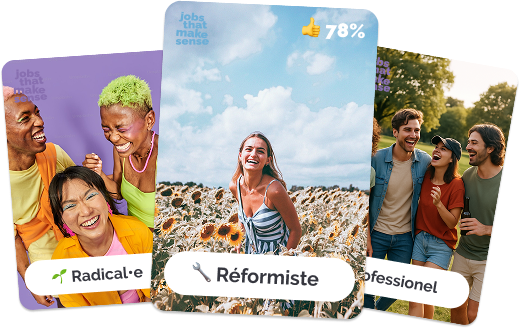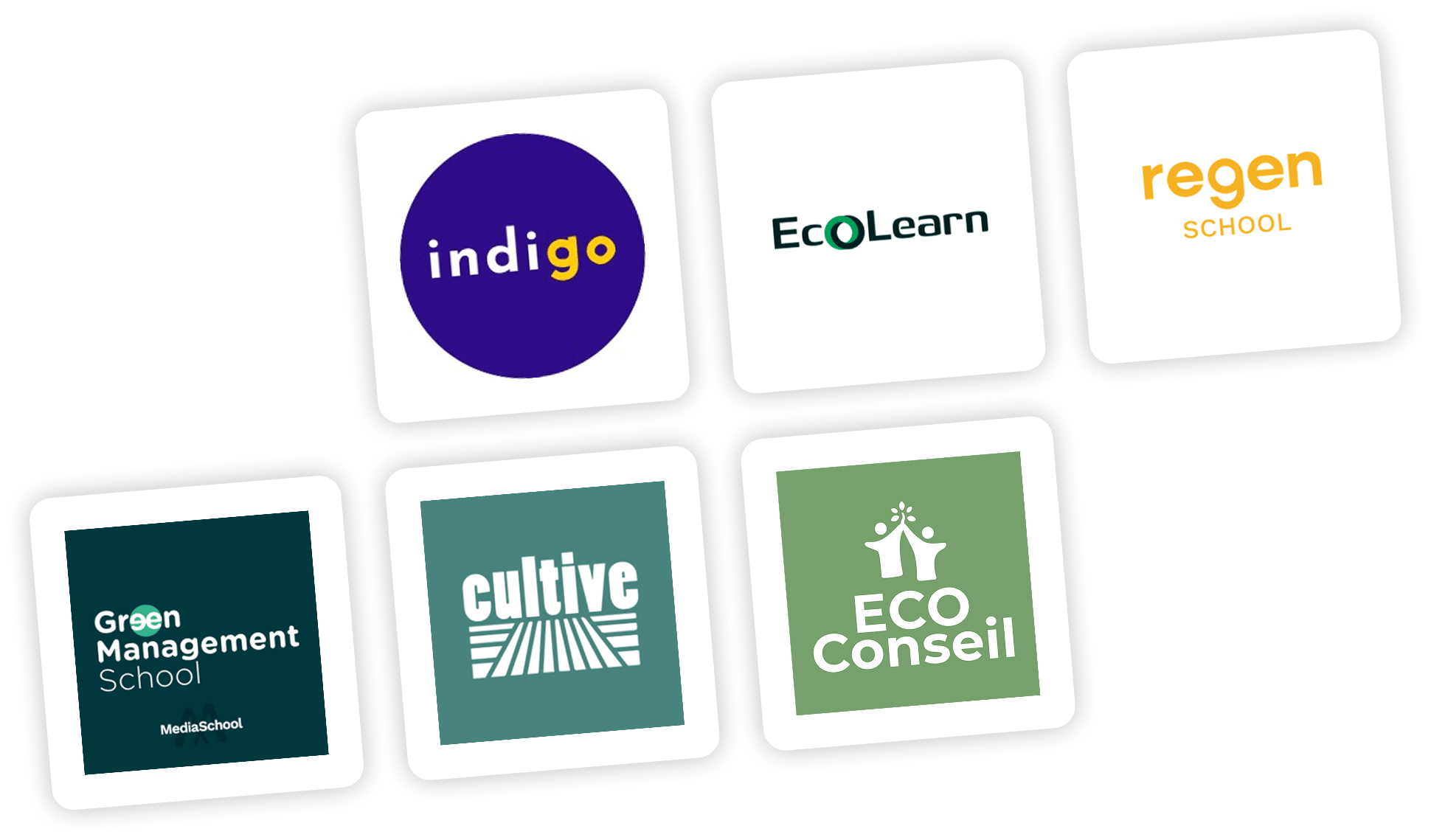Ingés d'Avenir : Louis, from AI to the farm
At 27, Louis has already had several lives. Ever since his studies, this mathematics enthusiast has never stopped trying to give meaning to his professional life, even if it means leaving the well-trodden path of a telecom engineer. Between boredom, doubts and reorientation, he explains his path and the steps that led him to finally turn to agro-ecology.
Studies, the quest for meaning and a time of doubt
On leaving high school, Louis Jeay entered the world of higher education by enrolling in a mathematics preparatory course, followed by an engineering school: Télécom SudParis. "I was attracted by applied mathematics, so I wanted to specialize in this field," he says. With his diploma in hand, he started looking for a job with "meaning", and so began a long journey: "I first found a job in data science applied to medical imaging". The job of a lifetime? "That first experience lasted 4 years! At a certain point, I realized that I was getting bored and wasn't convinced by the meaning of it all anymore."
Louis' solution? "I decided to stay in the same sector, with a few differences: With this sense-seeking in mind, I turned to agricultural robotics, with the use of artificial intelligence!" Was it the right experience this time? "Unfortunately, it quickly became boring. I soon realized that the problem was that I wasn't captivated by data science and AI. It bored me!"
Why? "There was a difference between the 'sense' of what I was doing on paper and the reality of things. Greenwashing and techno-solutionism (turning any human problem into a technical issue whose solution is expected to come from the development of new digital techniques, editor's note), that's not what I was looking for. I didn't feel any concrete, real impact, and I'm not going to talk about where the investments came from! All this very quickly created doubts about the true meaning of what I was doing." So it's time for Louis to reconsider!
The 3 ingredients of happiness at work
To give meaning to his professional life, Louis decided to focus on 3 essential ingredients: "I want to use my skills, find pleasure in what I do and have an impact. It was on this basis that he began his research. Through reading and watching videos, including L'agroécologie peut nous sauver (by Marc Dufumier & Olivier Le Naire), he discovered a passion for low-tech agriculture. "Agroecology was a revelation! I find it a wonderful solution from a political, ecological and social point of view."
The recipe for happiness? "The sector ticks all the boxes. I felt I was heading in the right direction, while still being able to remain an engineer by finding a gateway to specialize." Yet it's not a mathematically oriented discipline. So a choice had to be made, but it didn't seem complicated to Louis: "Giving up maths? It's a blessing in disguise. I wanted to get out of my comfort zone and diversify my skills. It's more challenging, but less boring!"
Experimenting in the field to make sure you make the right choice
After a long brainstorming session, Louis asked himself THE question: "How do I know if I like it?" His answer was experimentation, combining "theory and practice": "I went to work on a farm once a week for 6 months. For that, I went to the ⅗ (1 day of theory and 1 day of practice". And as with any experience, working on a farm, gave a better insight into working life. Indeed, Louis tells us that he was "able to see the problems that farmers face: backache, managing crop diseases and pests, weed management, sales, storage, team management, climatic hazards, machines breaking down.... There are also problems of distribution, conservation, management and recruitment is complicated!"
For Louis, the field experience seems to have been more than formative, even provoking an awareness of the difference with school treatment: "We're a bit like little kings coming out of engineering school, but it's a slap in the face when you arrive on a farm, you realize that managing a farm is very complex, with theoretical and practical problems, it's much harder than equations and AI ..."
Clearly, despite the vertigo, the experience was enriching for Louis: "I was going to give up what I already knew how to do, my salary, my job, but by discovering another world I gained so many things: new skills, discoveries, hope in the world, and even the joy of living! In the end, I gained more than I lost. "
So, what conclusion does he draw from working on the farm? "Farm work is very hard and multi-skilled, so there's little time for innovation. But working outside, with your hands, with plants, it's invigorating!" A simple, clear sentence, but full of meaning as to what this experience can bring!
Training to maintain a theoretical foundation
Louis isn't an engineer for nothing, he wants to understand the issues, get to the bottom of the problems and come up with enlightened solutions. And in his view, the problems facing agriculture are manifold: politics, lobbies, research investment geared too much towards productivist agriculture rather than sustainable agriculture, access to land and so on! Agroecology is far more scientifically advanced and stimulating than the intensive model, not to mention the social benefits. We therefore need to provide our farmers with the technical support they need to adopt more virtuous practices, to make them independent of this vicious circle of phytosanitary products/chemical fertilizers/mechanization... we have a long way to go".
But how can we help solve this problem? He doesn't want to work on a farm, but to continue to be involved in science, so he needs to train! "It's better to have a Master's degree and why not even do a thesis to better understand the root of the problem".
But once the type of training had been identified, which school should I choose? "I opted for a rather general Master's degree, at a fairly well-known school (AgroParisTech, editor's note). To make the right choice, I checked who the teachers were. In my master's, they're pretty committed people who've been developing agro-ecology for 10 or 20 years. I wanted to learn the sciences that would justify an agro-ecological transition, not to work in the agri-food industry. Before making my choice, I also called lots of former students I'd contacted beforehand via LinkedIn!"
What next?
Louis is taking advantage of his studies to consider several options: "I'm thinking about how to strike a balance between the field, contact with farmers, and science. So I'd like to do technical support for farmers and collaborative research with them on their plots, to help them develop more resilient practices: soils, agroforestry, weed management, etc. There are associations or small companies that do this."
Louis is aware that his choices are not necessarily accessible to everyone: "'I'm lucky to be able to do this, because I've saved a bit from my work, which helps me and my parents behind me if there are problems, but I think that those who are "in charge" have the means and that it would be for their own good and that of the planet".
Further information
👉 Annonces, formations, témoignages : Retrouvez toutes les ressources pour les Ingés d'Avenir



